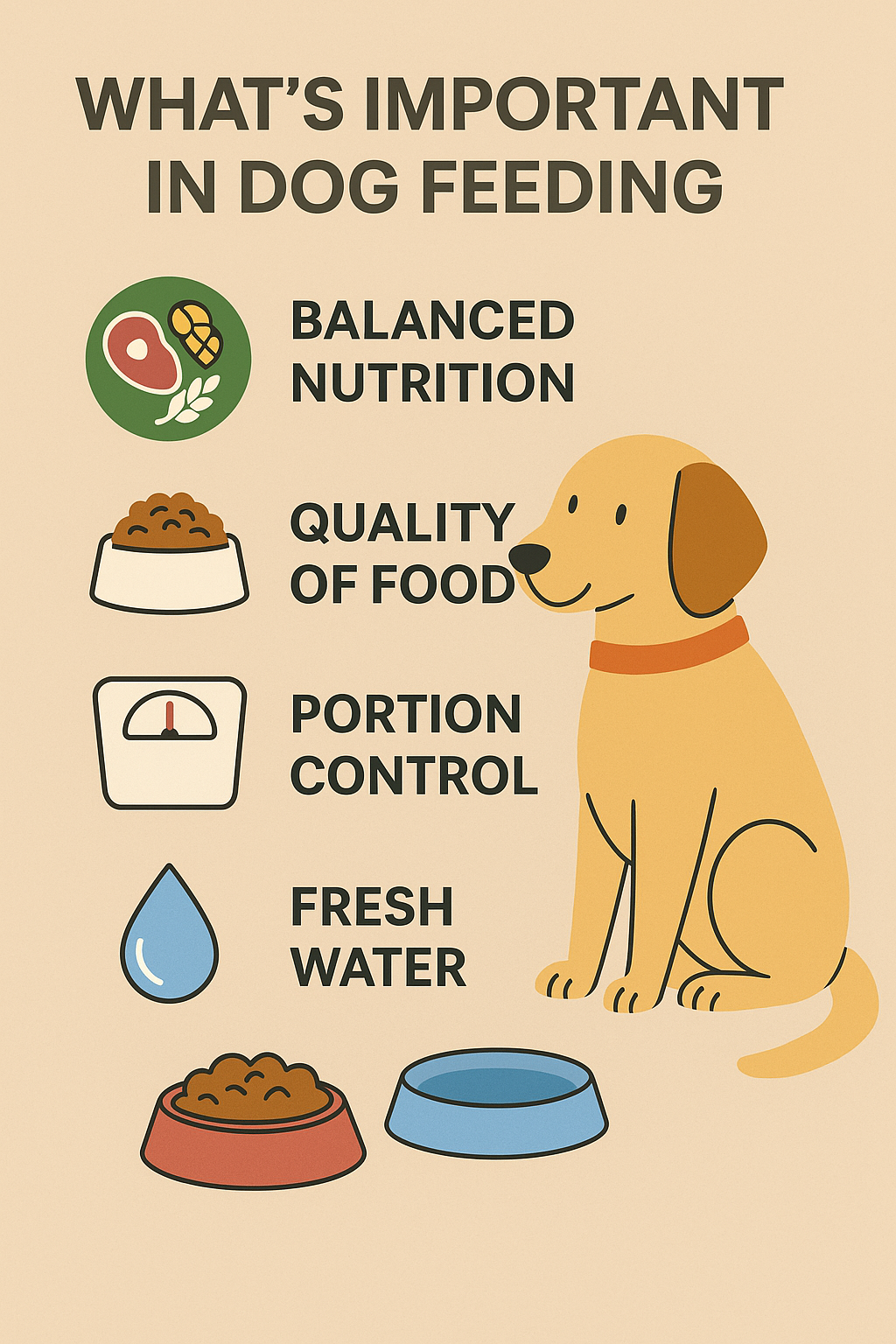1. Balanced Nutrition
Dogs need a proper balance of proteins, fats, carbohydrates, vitamins, and minerals. Commercial dog food (from reputable brands) is usually formulated to meet these needs, while home-cooked diets should be carefully planned.
2. Quality of Food
- Choose high-quality food with real meat (chicken, beef, fish, lamb) as the main ingredient.
- Avoid fillers like excessive corn, wheat, or soy.
- Limit artificial preservatives, colors, or flavors.
3. Portion Control
- Overfeeding leads to obesity, which can cause joint problems, diabetes, and heart issues.
- Follow recommended serving sizes based on your dog’s age, weight, breed, and activity level.
4. Feeding Schedule
- Puppies: 3–4 small meals a day.
- Adult dogs: 1–2 meals a day.
- Stick to a routine; consistency helps with digestion and behavior.
5. Fresh Water
Always provide clean, fresh water. Hydration is as important as food for digestion and overall health.
6. Avoid Toxic Foods
Never feed dogs:
- Chocolate
- Grapes/raisins
- Onions/garlic
- Alcohol
- Caffeine
- Cooked bones (they splinter easily)
7. Special Needs
Some dogs require special diets due to allergies, sensitive stomachs, or medical conditions (kidney issues, diabetes, etc.). Always follow your vet’s advice.
8. Healthy Treats
Treats should not exceed 10% of daily calories. Use healthy options like carrots, apple slices (without seeds), or vet-approved snacks.
9. Life Stage Matters
- Puppies need more protein and calories for growth.
- Adults need balanced diets for maintenance.
- Senior dogs may need lower-calorie, joint-supportive diets.
10. Monitor Your Dog’s Health
Regularly check:
Stool consistency
Weight and body shape
Coat shine and skin health
Energy levels and behavior


